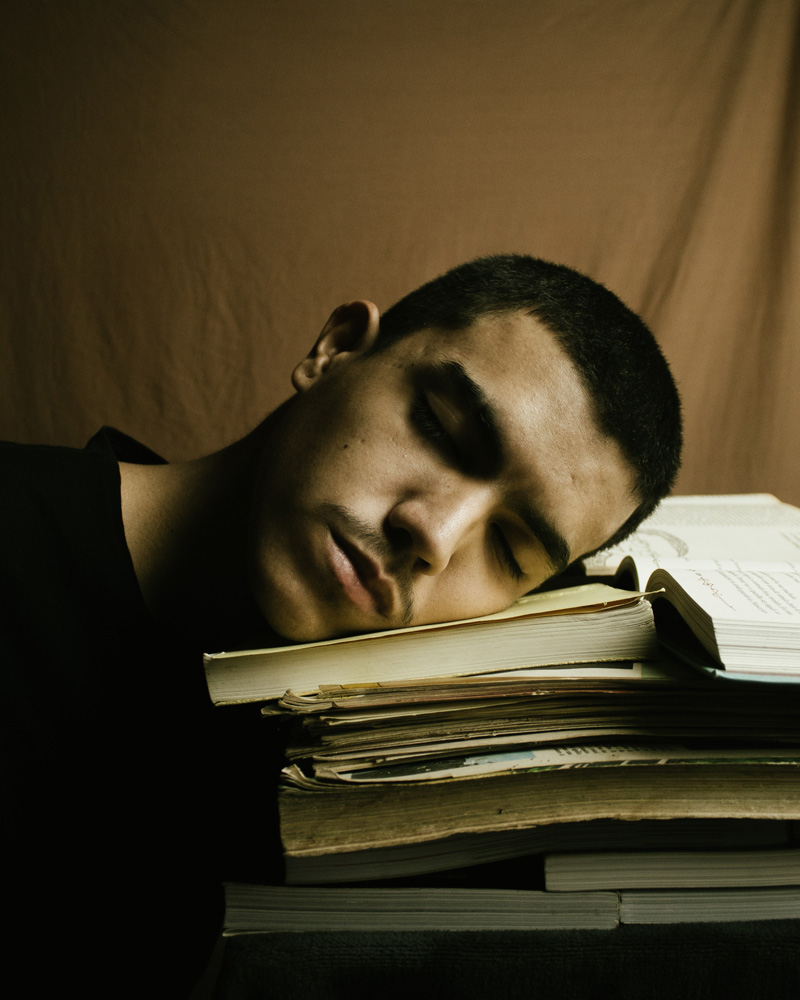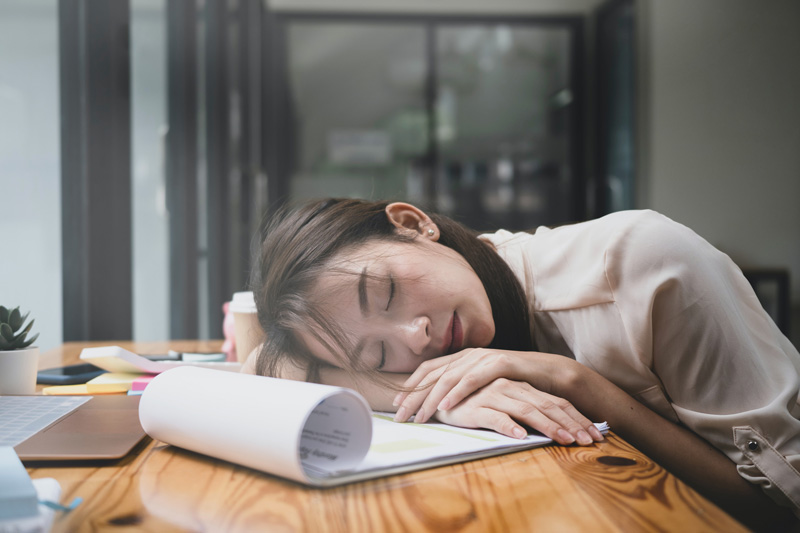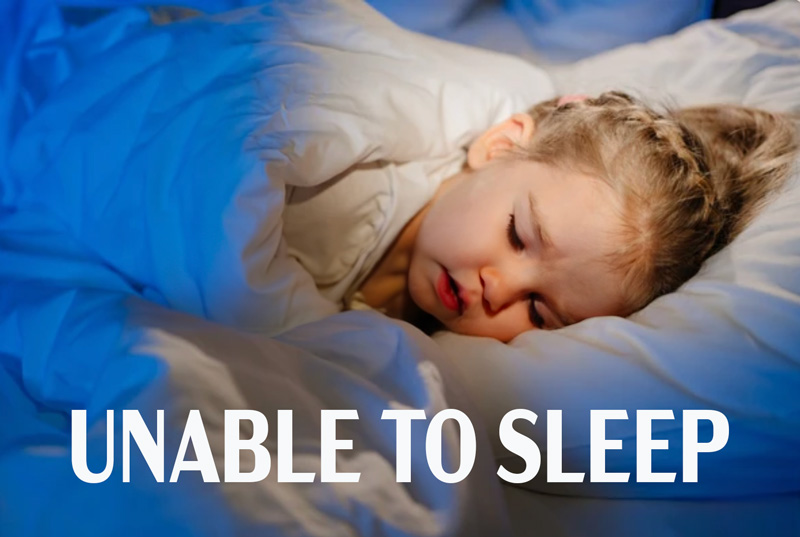The Correlation Between Sleep and Anxiety
Aug. 14, 2023 #Sleep Disorders
The Connection between Sleep and Anxiety
The correlation between sleep and anxiety is significant and bidirectional. Insufficient sleep can have negative effects on mental health, particularly increasing anxiety levels. Scientific studies consistently show a strong link between lack of sleep and heightened anxiety and stress.
When we don't get enough sleep, our brain's ability to regulate emotions and manage stress is compromised. This can lead to increased feelings of anxiety, irritability, and difficulty coping with everyday challenges. On the other hand, anxiety disorders worsen sleep quality.
To effectively manage anxiety, it is crucial to prioritize healthy sleep habits. This includes establishing a consistent sleep schedule, creating a relaxing bedtime routine, and maintaining a sleep-friendly environment. Seeking professional help from a therapist or healthcare provider can provide the necessary guidance and support in managing both sleep disturbances and anxiety.
Scientific Studies on Sleep and Anxiety
Multiple scientific studies confirm the strong relationship between lack of sleep and increased anxiety levels. These studies provide valuable insights into the negative impact of sleep deprivation on mental well-being.
Research consistently shows that individuals who do not get enough sleep are more likely to experience heightened anxiety and stress. Experimental studies have directly demonstrated the effect of sleep deprivation on anxiety levels, with sleep-deprived participants showing increased signs of anxiety compared to those who have adequate sleep.
Additionally, sleep deprivation can worsen existing anxiety symptoms, contributing to a vicious cycle where anxiety interferes with sleep, leading to further sleep deprivation and increased anxiety. Prioritizing healthy sleep habits is crucial in managing anxiety, and seeking professional help can provide effective strategies for addressing sleep disturbances and anxiety disorders.
Anxiety Disorders and Sleep Disturbances
Anxiety disorders, such as generalized anxiety disorder (GAD) and post-traumatic stress disorder (PTSD), significantly disrupt sleep patterns. Individuals with anxiety disorders often struggle to fall asleep and stay asleep due to constant worry, racing thoughts, and hyper-vigilance linked to their condition. Sleep disturbances such as insomnia, nightmares, or night sweats further intensify anxiety symptoms and impact overall mental well-being.
This relationship between anxiety and sleep disturbances is bidirectional. Anxiety can disrupt sleep quality, while inadequate sleep can increase anxiety levels. Managing both anxiety and sleep issues requires recognition of the impact of anxiety-related sleep disturbances and professional help from therapists or healthcare providers to develop effective strategies.
The Importance of Prioritizing Healthy Sleep Habits
Establishing and maintaining healthy sleep habits significantly improves sleep quality and helps alleviate anxiety-related sleep disturbances. Consider the following key points:
- Consistent sleep schedule: Going to bed and waking up at the same time everyday, including weekends, helps regulate the body's internal clock and promotes better sleep.
- Relaxing sleep environment: Creating a calm and soothing sleep environment by keeping the bedroom dark, quiet, and at a comfortable temperature enhances sleep quality.
- Avoiding stimulants: Avoid consuming stimulants like caffeine, nicotine, and electronics before bedtime, as they can interfere with falling asleep and disrupt sleep patterns.
- Relaxation techniques: Engaging in relaxation techniques, such as deep breathing exercises, progressive muscle relaxation, or meditation, helps calm the mind and alleviate anxiety-related sleep disturbances.
- Stress-reducing activities: Incorporating stress-reducing activities into daily routines, such as yoga, gentle exercise, journaling, or listening to soothing music, can reduce anxiety and promote better sleep.
By prioritizing healthy sleep habits, individuals can improve sleep quality, reduce anxiety-related sleep disturbances, and enhance overall well-being. If these strategies do not improve sleep or if sleep disturbances persist, seeking professional help is essential for further guidance and support from therapists or healthcare providers.
Seeking Professional Help for Anxiety-Related Sleep Disturbances
If anxiety-related sleep disturbances significantly impact daily life, it is important to seek professional help from healthcare providers or mental health professionals. Consider the following:
- Appropriate diagnosis: Professionals can conduct a thorough evaluation to determine the underlying causes of anxiety-related sleep disturbances by assessing sleep patterns, discussing symptoms, and exploring contributing factors.
- Treatment options: Once a diagnosis is made, professionals can recommend appropriate treatment options, including therapy, medication, or a combination approach tailored to individual needs. Therapy helps develop coping mechanisms for managing anxiety and improving sleep quality, while medication may address underlying anxiety disorders or sleep disturbances.
- Continued support: Seeking professional help ensures ongoing support and monitoring. Regular check-ins allow for tracking progress, making necessary treatment adjustments, and providing a safe space to discuss concerns or challenges.
Remember, seeking professional help is a proactive step towards improving overall well-being. With the right support and treatment, individuals can effectively manage anxiety-related sleep disturbances and enhance their quality of life.









COMMENTS